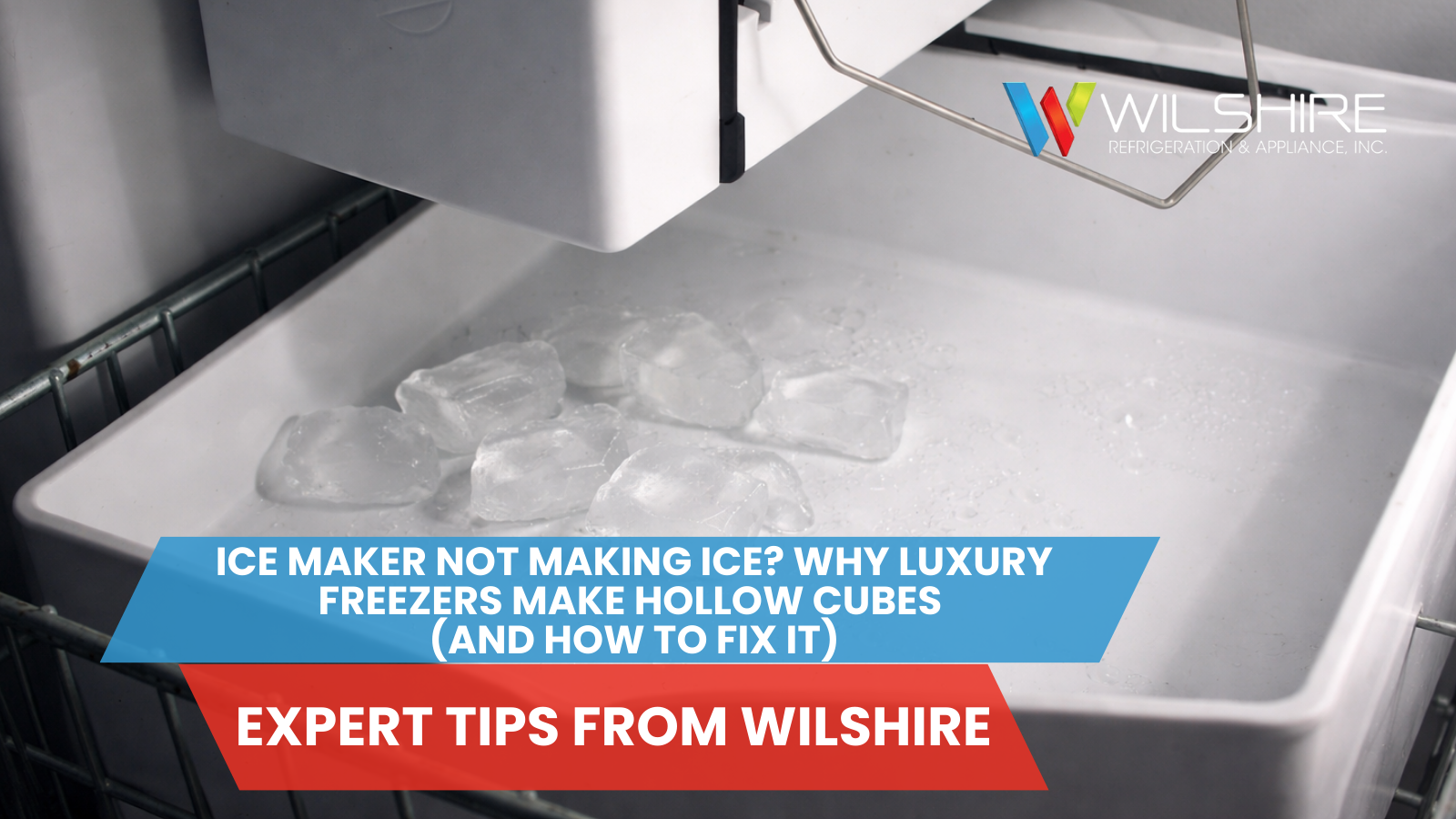Cove dishwashers are engineered for remarkably quiet operation, so when an unexpected noise begins, it can be both jarring and a cause for concern. Fortunately, not every sound indicates a serious malfunction. Some noises are part of the normal cycle, while others point to minor issues that routine maintenance can quickly resolve.
If a Cove appliance has become noticeably louder, a structured approach helps identify the source. This guide explores the most common causes, offers simple self-repair steps, and outlines when professional Cove dishwasher repair becomes necessary.
Understanding Normal vs. Problematic Sounds
Even appliances known for their silence generate some noise. The key to maintaining a Cove dishwasher is discerning the difference between standard operating sounds and those that require attention.
Sounds That Are Usually Normal
A few sounds are simply a byproduct of the cleaning process and do not signal a fault:
- A low, steady hum heard during either the wash or drain cycle.
- The soft, gentle swishing noise caused by water moving and spraying inside the tub.
- A brief, short grinding or humming sound, which is normal only for models equipped with the water softener, during its operational phase.
Sounds That Could Mean Something is Wrong
Noises that are repetitive, sharp, or significantly louder than usual are often a clue that something requires adjustment or repair:
- A consistent, loud banging or knocking sound.
- A persistent, high-pitched squeal or whine.
- Ticking sounds that continue throughout the cycle.
- Buzzing from the fan that lasts longer than the drying stage.
Identifying Specific Noises and Their Causes
Pinpointing the exact nature of the noise helps diagnose the issue and determine the appropriate fix.
Rattling or Ticking
Loose utensils or lightweight dishes frequently cause rattling, especially when the racks are overloaded or incorrectly positioned. The spray arms may also strike items that are poorly placed. To resolve this, load the dishwasher with care, ensuring smaller pieces are secured, and manually confirm the spray arms can rotate freely before starting a cycle.
Grinding or Humming
If this noise is a short, intermittent sound, it may be the normal water softener unit operating (only in models with this feature). If your model does not have a water softener, or if the noise is constant and louder than typical, attention should turn to the filter and drain area.
A loose filter or minor clog can generate an ongoing humming or grinding. Remove the filter, clean it thoroughly under running water, and ensure it is firmly and correctly seated when replaced.
Loud Fan Noise During Drying
A fan that sounds too loud during the drying cycle, particularly in models like the DW2451 or DW2451WS, may be struggling due to debris. Carefully inspect the vent area with a flashlight to look for anything blocking airflow and gently clear out any obstructions.
Squealing or High-Pitched Whine
This high-frequency noise often points to an issue with installation, a strained motor, or a blockage within the pump. First, check that the dishwasher is level on the floor. Next, clean the filter and ensure the kickplate and insulation are correctly positioned and not pressing against any internal moving parts.
Overall Loud Operation
When the entire appliance simply sounds louder than it used to, it can be running with a dirty filter, missing parts, or running an exceptionally small load. An improper initial installation can also amplify normal operational sounds. To mitigate this, run full loads whenever possible, clean the filter as part of regular maintenance, re-secure the kickplate, and verify the unit is level and stable.
Simple Home Troubleshooting Steps
Several common issues can be quickly resolved with basic checks that do not require tools or technical expertise.
Load the Dishwasher Correctly
Incorrect loading is a prime source of rattling or ticking noises. Confirm that dishes do not impede the movement of the spray arms, securely place lightweight items like plastic lids, and avoid the temptation to overstuff the racks.
Clean or Replace the Filter
A clogged or improperly seated filter reduces cleaning performance and increases operational noise. Remove the filter, thoroughly rinse away food debris under warm water, and inspect it for any damage that would require a replacement.
Check the Spray Arms for Obstructions
Small food particles, bits of seeds, or fragments of glass can become lodged in the spray arm holes. Detach the arms, rinse them, and use a toothpick or small brush to gently clear any blockages.
Level the Dishwasher’s Feet
If the unit is not sitting perfectly level, it can cause increased vibrations or put stress on the motor, leading to unusual sounds. Use a simple level tool to adjust the feet until the dishwasher rests evenly and securely on the floor.
Reattach the Kickplate and Insulation
The kickplate is an essential part of the sound-dampening system. If it is loose or missing, the machine will inevitably sound louder. Ensure both the insulation and the kickplate are firmly secured and clear of any internal moving components.
Run an Empty Cycle to Isolate the Sound
Performing a short wash cycle with an empty dishwasher can help precisely locate the source of the noise. Listen carefully during each phase—wash, drain, and dry—to better identify when the problematic sound occurs.
When to Contact a Professional Repair Service
Some problems extend beyond simple home maintenance and require the attention of a specialist familiar with luxury appliances.
The Noise Persists After Troubleshooting
If basic maintenance steps fail to resolve the issue, a deeper problem may exist within the motor, drain pump, or complex internal sensors.
The Fan is Making Scraping or Persistent Buzzing
Loud or uneven fan noise during the drying cycle can indicate either debris lodged deep inside the fan housing or a faulty component that requires professional inspection and repair.
Performance Issues Accompany the Noise
Excessive noise combined with dishes that remain dirty or standing water left in the bottom of the tub often suggests a major clog or a part failure demanding expert service.
Suspected Motor or Internal Part Failure
Grinding, screeching, or buzzing that does not subside may signal that a critical internal component is wearing out or broken. These are complex issues that are not safe or feasible for a do-it-yourself fix and must be handled by a qualified technician.
When Expert Advice is Preferred
Cove dishwashers are high-performance luxury appliances. Attempting to guess at complex repairs risks creating larger, more expensive problems. A specialized service understands the intricacies of these machines and ensures they are handled with the precision required.
Frequently Asked Questions
Why did my Cove dishwasher suddenly become loud?
The change in volume is most often traced back to a dirty filter, loose items in the tub, or the appliance running with a nearly empty load.
Is a gentle humming noise normal for a Cove?
Yes, a soft, low hum is a standard sound during the wash and drain cycles.
What causes the fan to make noise during the dry cycle?
Debris near the fan blades or an unbalanced load that causes minor vibration can lead to loud fan sounds.
Can simple noisy dishwasher issues be fixed by the homeowner?
Minor issues, such as cleaning the filter or adjusting the load, are simple fixes. However, more complex, persistent noises require professional expertise.
When is the right time to schedule a service appointment?
If unusual noises continue after performing basic troubleshooting or if there are noticeable drops in cleaning or draining performance, it is time to arrange a professional repair.
Need Help With a Noisy Cove Dishwasher? Call Wilshire Today
If your Cove dishwasher is still making noise after basic troubleshooting, it might be time for a deeper look. Wilshire’s expert technicians have years of experience with Cove and other high-end appliances. Schedule your service online or give us a call at (818) 898-9999 to get your dishwasher running quietly again.




